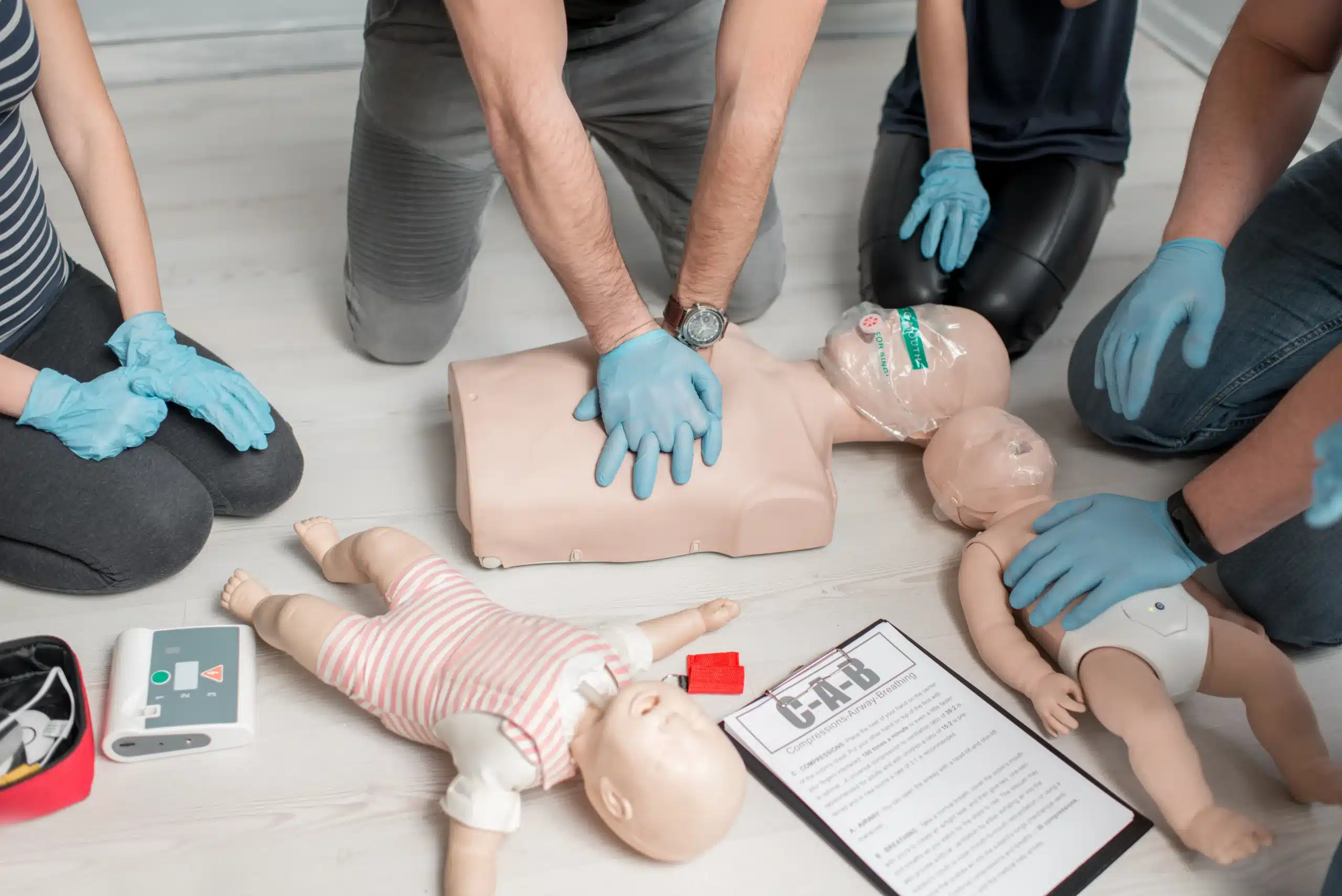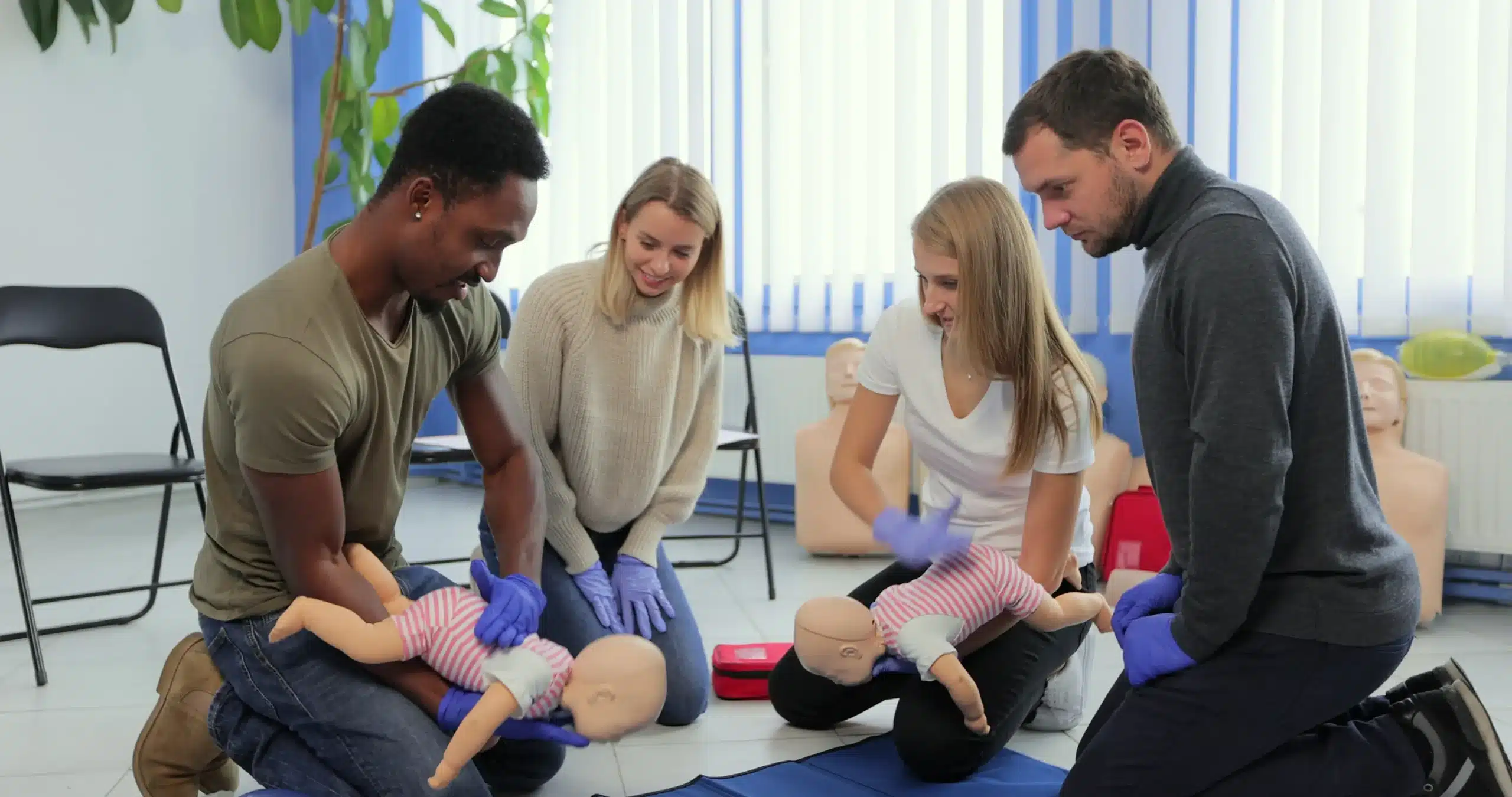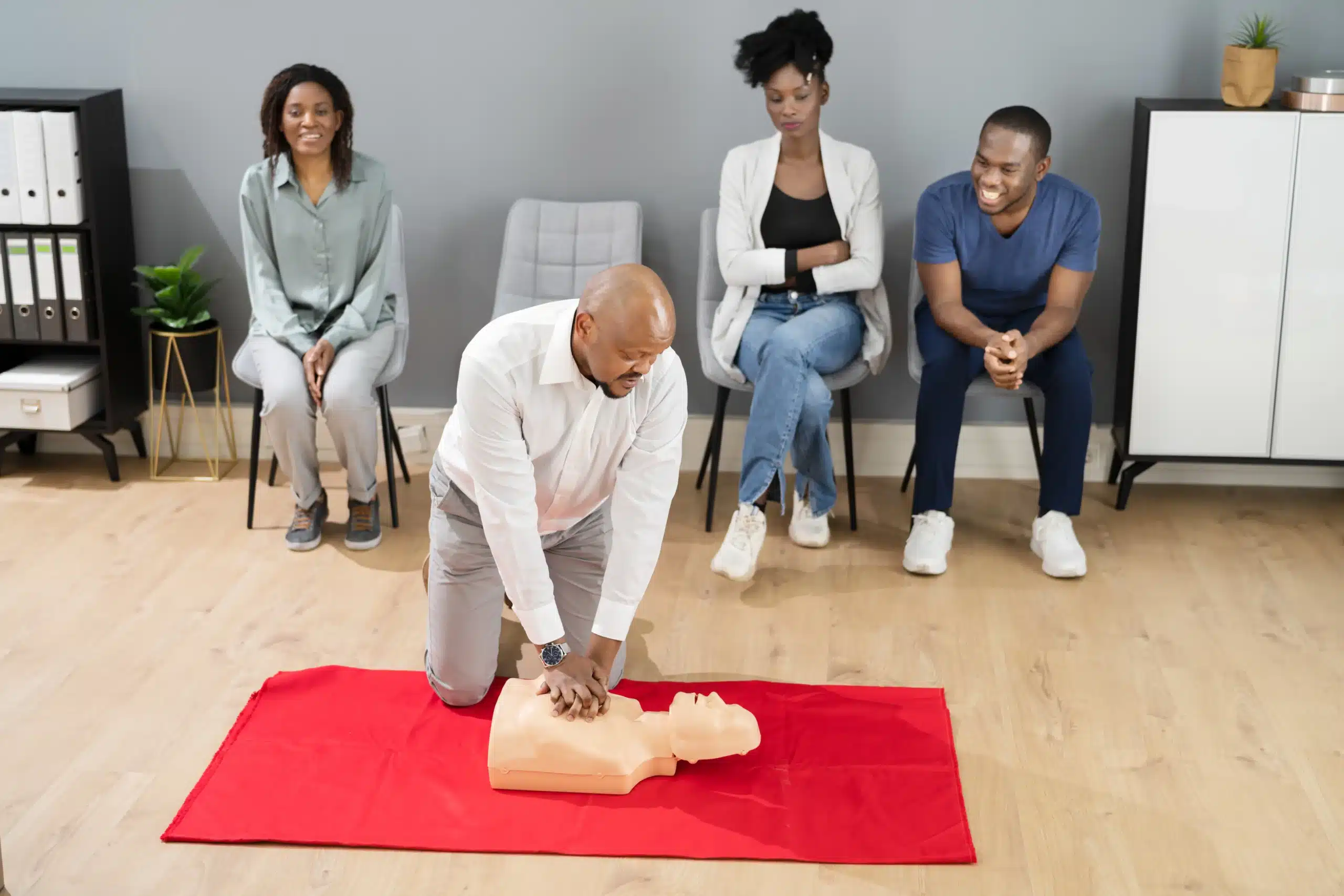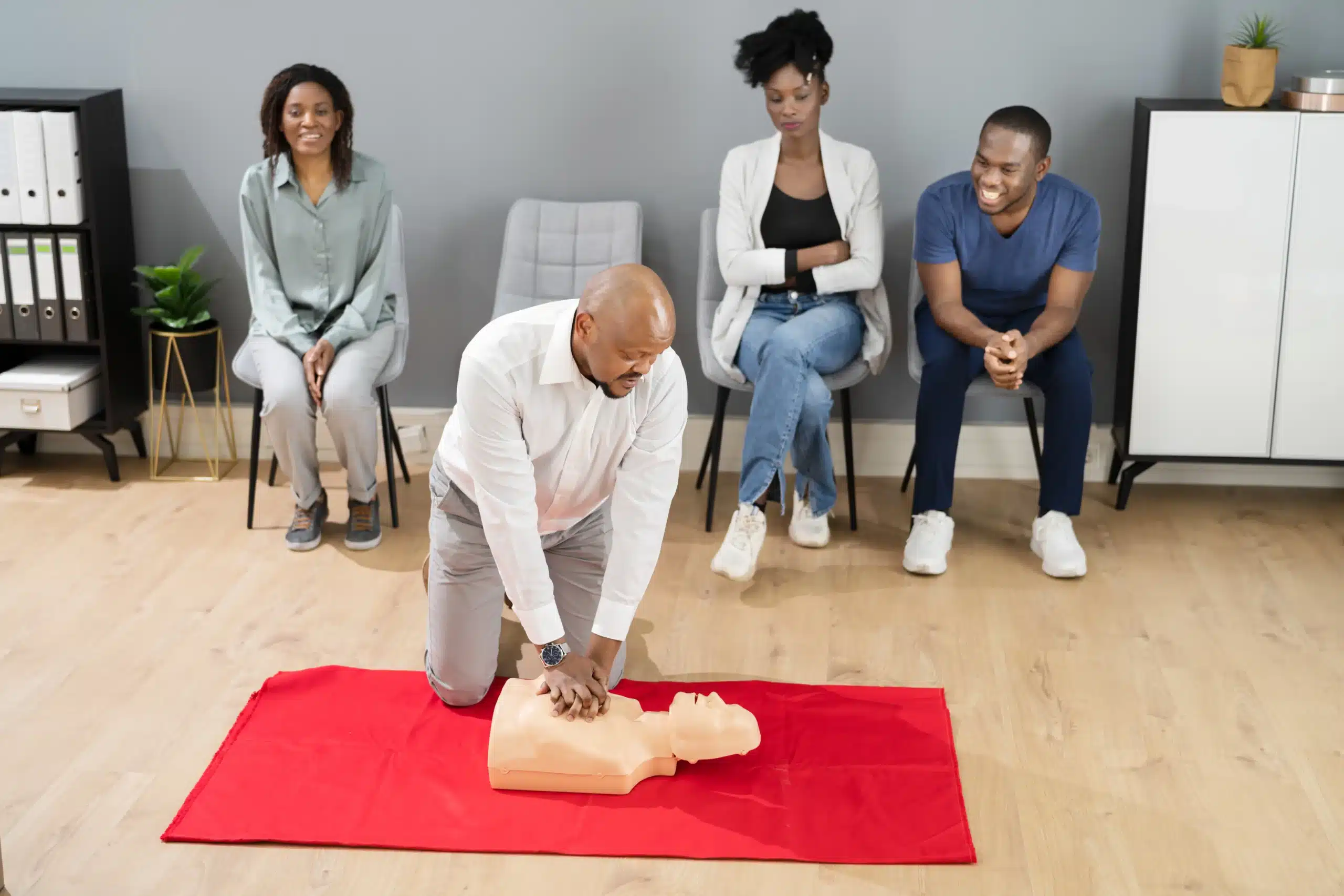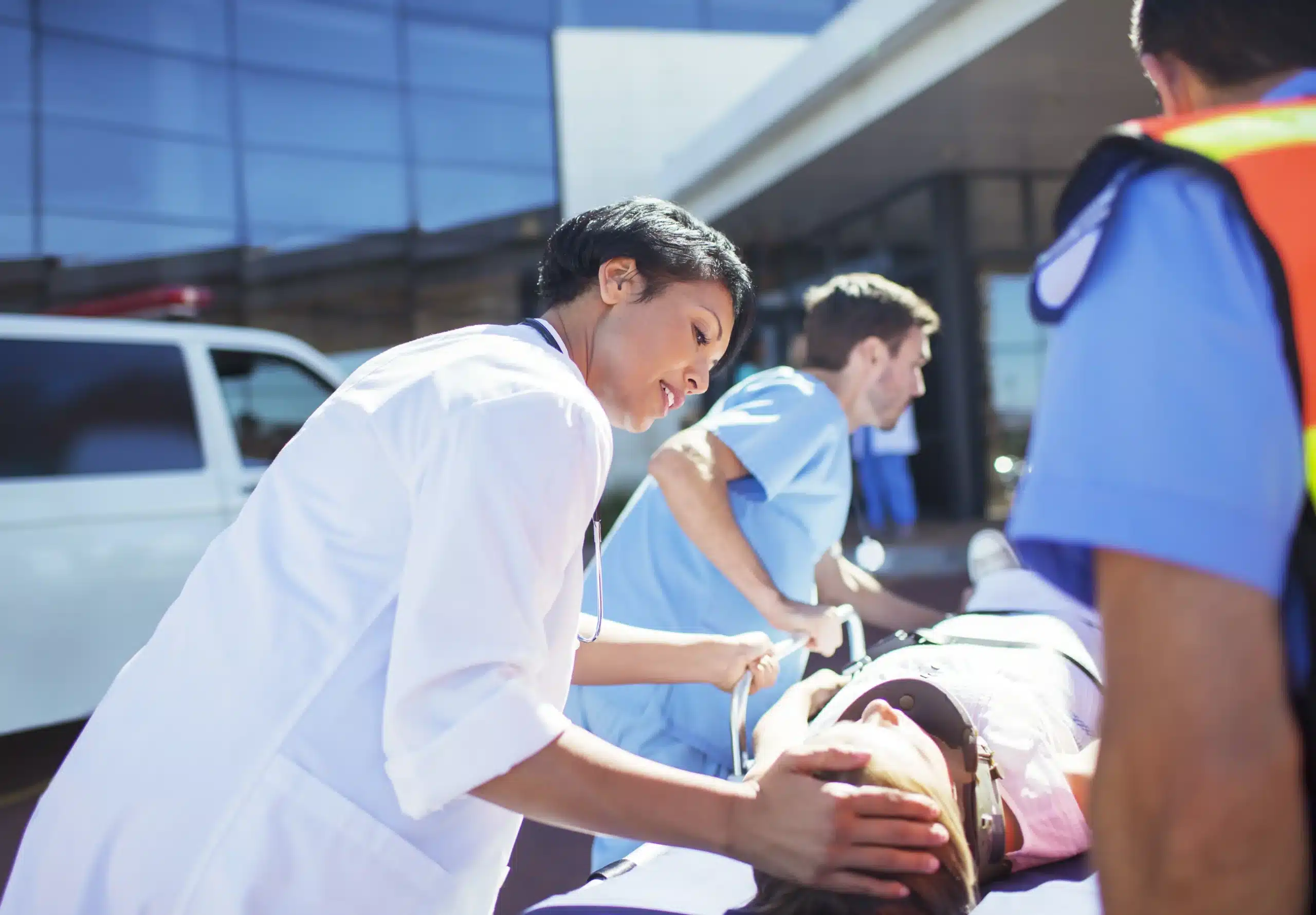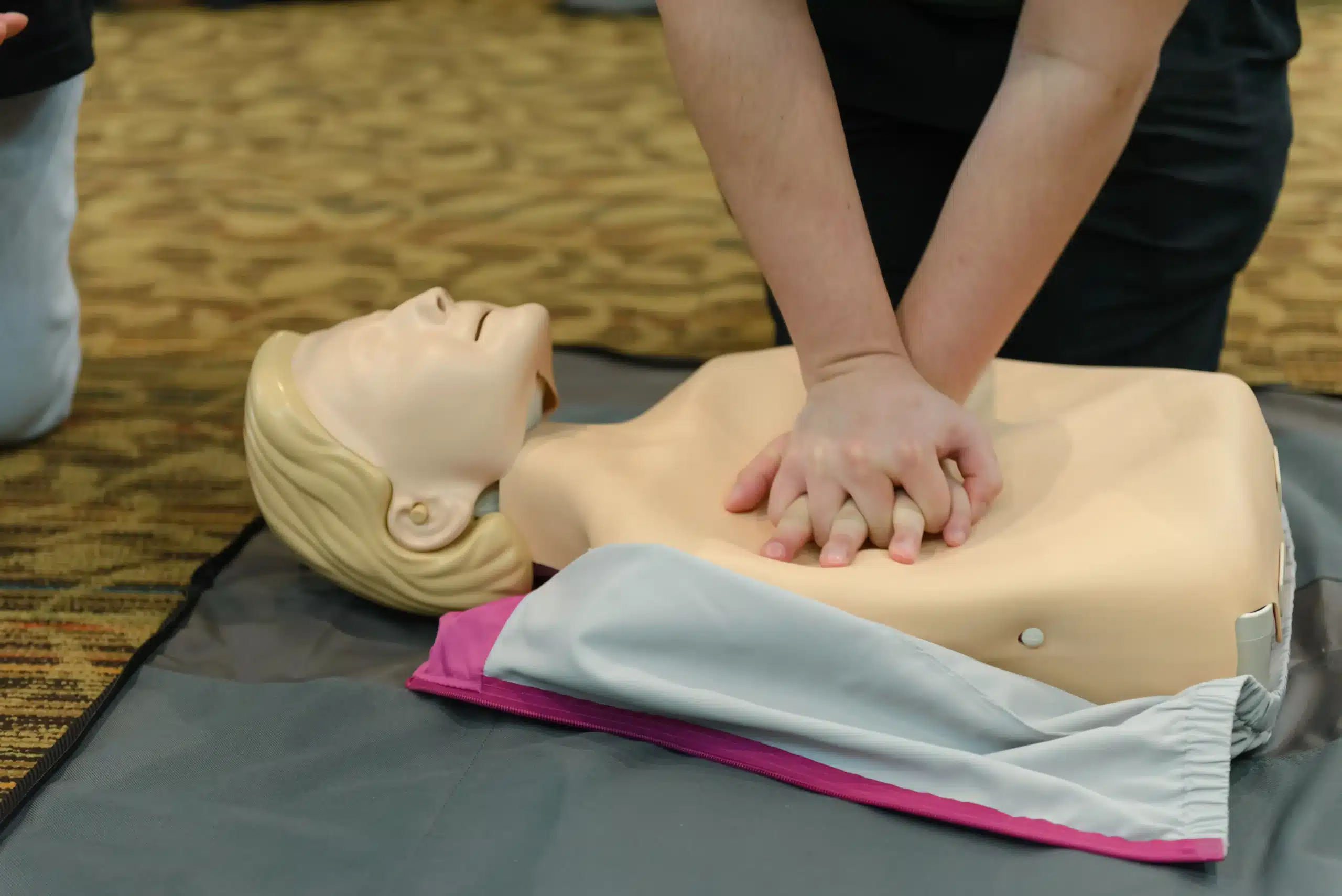For healthcare professionals in San Francisco, Advanced Cardiac Life Support (ACLS) certification is a non-negotiable asset. It’s the key to confidently managing cardiovascular emergencies and providing the highest level of patient care. This guide simplifies the process of obtaining ACLS certification in San Francisco. We’ll break down the core components of ACLS training, explore the different certification pathways, and offer practical advice for choosing the right course and provider. We’ll also discuss the costs, prerequisites, and renewal process, ensuring you have all the information you need to pursue and maintain your ACLS certification in San Francisco.
Key Takeaways
- ACLS is crucial for advanced cardiac care: It goes beyond basic CPR to equip healthcare professionals with the skills to manage complex cardiovascular emergencies, improving patient outcomes.
- Choose your ACLS training wisely: Consider factors like flexible scheduling, comprehensive materials, and ongoing support when selecting a provider. A blended learning format can offer a convenient way to complete the course.
- Set yourself up for ACLS success: Prepare by reviewing core concepts, actively engage in hands-on practice, and manage your study time effectively. Look for providers who offer continuing education opportunities to maintain your skills.
What is Advanced Cardiac Life Support (ACLS)?
Advanced Cardiac Life Support (ACLS) is an advanced, instructor-led classroom course that teaches healthcare professionals how to manage cardiopulmonary arrest and other cardiovascular emergencies. It builds on the foundation of Basic Life Support (BLS) skills. This specialized training program is designed for healthcare providers, including doctors, nurses, paramedics, and respiratory therapists, who are responsible for managing patients during the first 10 minutes of a cardiovascular emergency. Bay Area CPR offers ACLS training.
Key ACLS Training Components
ACLS courses cover a range of topics, including recognizing and managing respiratory and cardiac arrest, identifying and treating acute coronary syndromes (ACS), and understanding the importance of effective team dynamics during resuscitation efforts. The training helps healthcare professionals assess, treat, and track patients in life-threatening situations. It emphasizes the importance of high-performance teams and effective communication during emergencies. Practical simulations and case studies are often incorporated to reinforce learning and build confidence in applying these skills in real-world scenarios.
Why Healthcare Professionals Need ACLS
For healthcare professionals, ACLS certification is often a job requirement. It equips them with the knowledge and skills to make quick, informed decisions during critical situations, ultimately improving patient outcomes. Beyond the technical skills, ACLS training instills confidence and reduces stress levels for healthcare providers, enabling them to perform effectively under pressure. This is particularly crucial in rural and remote healthcare settings where access to specialized care might be limited and emergency medical services response times may be longer. In these situations, healthcare professionals trained in ACLS play a vital role in stabilizing patients and providing essential care.
Common ACLS Certification Misconceptions
One common misconception is that ACLS certification is a one-time achievement. In reality, ACLS certification requires renewal every two years. This ensures healthcare providers stay up-to-date with the latest advancements and guidelines in cardiovascular care. Another misconception is that ACLS is simply an advanced form of CPR. While CPR is a critical component of basic life support and is included in ACLS training, ACLS encompasses a broader range of skills and knowledge related to cardiovascular emergencies. It goes beyond basic CPR to include advanced airway management, pharmacology, and electrocardiogram (ECG) interpretation.
Top San Francisco ACLS Certification Providers
Finding the right ACLS certification course can feel overwhelming with so many options. To simplify your search, we’ve compiled a list of reputable providers in San Francisco.
Bay Area CPR
Bay Area CPR offers a comprehensive range of American Heart Association-certified courses, including BLS, ACLS, PALS, and Wilderness First Aid. They are known for their flexible scheduling and convenient locations throughout the Bay Area, serving San Francisco, Daly City, San Mateo, and Oakland. Learn more about their ACLS course and their BLS certification options.
HeartStart CPR
HeartStart CPR provides AHA ACLS initial certification and renewal classes throughout the San Francisco Bay Area. They offer same-day certification upon successful completion and provide both classroom and on-site training for various organizations, including corporations, businesses, schools, and healthcare facilities.
UCSF Kanbar Center
The UCSF Kanbar Center offers American Heart Association (AHA) courses in Basic Life Support (BLS), Pediatric Advanced Life Support (PALS), and Advanced Cardiac Life Support (ACLS). Explore their course catalog. Note that registration is currently paused until January 15, 2025, for a system update.
American Heart Association Training Centers
The American Heart Association’s Advanced Cardiovascular Life Support (ACLS) classes are essential for preparing healthcare providers to manage cardiac emergencies and other life-threatening situations. You can locate ACLS classes offered by the AHA in the San Francisco Bay Area.
ACLS Certification Options and Course Structures
Finding the right ACLS course structure is key to successfully completing your training. Thankfully, several options are available to fit your learning style and schedule.
In-Person, Online, and Hybrid Formats
ACLS certification courses come in various formats. Traditional in-person classes provide a structured environment with direct interaction with instructors and peers. For those seeking more flexibility, online ACLS courses let you learn at your own pace and often include interactive modules and simulations. Hybrid courses, like those offered by Bay Area CPR, combine online learning with in-person skills sessions for hands-on practice. This blended approach lets you absorb the material thoroughly before demonstrating your skills. Other providers, such as HeartStart CPR, also offer a range of learning formats, from classroom-based courses to on-site training.
Typical Course Content and Duration
No matter the format, ACLS courses cover essential life-saving skills. You’ll learn advanced life support assessment, how to manage respiratory emergencies, and the protocols for various life-threatening situations. Course duration varies, but many programs combine online learning with a shorter in-person skills session. Bay Area CPR, for instance, offers a blended ACLS course that pairs 7 hours of online learning with a 4-hour in-person skills session.
Skills Assessments and Practical Training
Hands-on training is crucial for ACLS certification. Most programs require completing the online portion before attending an in-person skills assessment. This ensures you have a solid understanding of the material before practical application. During the skills assessment, you’ll face realistic scenarios that test your ability to assess, treat, and manage patients in life-threatening situations. This practical training builds confidence and prepares you for real-world emergencies. While currently paused, the UCSF Kanbar Center typically emphasizes this hands-on approach in their AHA courses, highlighting the importance of practical skills development in ACLS training.
ACLS Certification: Costs and Prerequisites
Getting ACLS certified is a smart move for healthcare professionals, and understanding the associated costs and requirements upfront makes the process smoother. This section breaks down what you need to know about expenses, prerequisites, and eligibility for ACLS certification in San Francisco.
Initial Certification and Renewal Costs
ACLS certification involves an initial cost and recurring renewal fees. Initial certification typically costs around $260 and requires about 12 hours of training. Renewal is generally less expensive, around $190, with a shorter training duration of roughly six hours. These costs can vary slightly based on the training provider. Some providers, like UCSF Kanbar Center, offer a blended learning approach with an online portion costing around $168 (paid directly to the AHA) and an in-person skills session for approximately $90. This hybrid model offers flexibility while still ensuring you get essential hands-on practice.
BLS Certification Requirement
A common question about ACLS certification is whether you also need to be BLS certified. The answer is yes, BLS (Basic Life Support) certification is a prerequisite for ACLS. However, there’s a helpful caveat: if you complete ACLS or PALS (Pediatric Advanced Life Support) training, a separate BLS certification isn’t issued. The AHA recognizes that these advanced courses inherently cover BLS skills.
Other Enrollment Criteria
ACLS classes are designed for healthcare professionals who respond to cardiovascular emergencies. This includes roles like doctors, nurses, paramedics, and other healthcare providers who need the skills to manage life-threatening situations and perform resuscitation. ACLS training equips participants with the knowledge and practical skills needed to handle these critical scenarios effectively.
Provider Benefits for ACLS Certification
Getting your ACLS certification is a significant professional step, so you want training that fits your life. Let’s look at some key benefits you should expect from a quality ACLS course.
Flexible Scheduling Options
Juggling work, family, and other commitments makes finding time for professional development tough. Thankfully, many ACLS providers understand this and offer flexible scheduling to accommodate busy healthcare professionals. Look for courses with weekend and evening options, ACLS renewal courses that combine online learning with in-person skills sessions, and accelerated programs that condense the material into a shorter timeframe. This flexibility allows you to pursue your ACLS certification without disrupting your existing schedule. Bay Area CPR offers a variety of course times and locations throughout the Bay Area, including San Francisco, Daly City, San Mateo, and Oakland, making it easier to find a class that works for you.
Comprehensive Training Materials
ACLS certification covers a lot of ground, from recognizing and managing cardiac arrest to understanding complex algorithms and pharmacology. A good ACLS course provides comprehensive training materials that cover all the necessary information. These might include textbooks, online resources, practice exams, and interactive simulations. High-quality materials not only prepare you for the certification exam but also equip you with the knowledge and skills you’ll need to confidently handle real-life emergencies. Make sure the program you choose aligns with the latest American Heart Association guidelines.
Post-Certification Support and Resources
Your learning journey doesn’t end when you receive your ACLS certification. A reputable training provider offers ongoing support and resources to help you maintain your skills and stay up-to-date with the latest advancements in cardiovascular care. This could include access to online refresher courses, continuing education opportunities, and a network of instructors and peers. Reading reviews from past students can give you valuable insights into the quality of post-certification support offered by different providers. Look for programs that offer a supportive learning environment and invest in your long-term success.
Prepare for and Ace Your ACLS Course
Getting ready for your ACLS course? A little prep work goes a long way. This section offers tips to prepare, setting you up for success.
Study Materials and Pre-Course Work
Start strong by reviewing the ACLS guidelines and algorithms before class. Having a basic understanding of the material will boost your confidence and make it easier to absorb the information presented during training. Think of it as building a foundation.
Tips for Mastering Hands-On Skills
ACLS isn’t just about textbooks; it’s about action. Actively participate in hands-on practice and simulations. Don’t hesitate to ask questions and engage in discussions with your instructors and peers. Debriefing after scenarios and a proactive attitude will significantly improve your skills and confidence in managing real-life emergencies.
Time Management Strategies
ACLS courses cover a lot of material. Plan your study time effectively. Break the material into manageable chunks and create a study schedule. Consider using mobile apps designed for quick access to ACLS algorithms—a handy tool during the course and in real-world emergencies.
Advice for First-Time ACLS Students
If you’re new to ACLS, this training is relevant for a wide range of healthcare providers who encounter cardiac emergencies. While CPR is a fundamental part of basic life support, ACLS certification takes your knowledge and skills to the next level. Understanding this distinction will help you appreciate the depth of the training and its importance in advanced cardiac care.
Maintain Your ACLS Certification
Keeping your ACLS skills sharp is crucial for providing the best patient care. This section covers how to stay current with your certification and further develop your expertise.
Renewal Process and Requirements
ACLS certification is typically valid for two years. To maintain your credentials, complete a renewal course before your certification expires. Many training centers in San Francisco, including Bay Area CPR, offer ACLS renewal courses that often combine online learning with in-person skills testing. This blended approach allows for flexible learning while ensuring you meet the practical requirements.
Continuing Education Opportunities
Beyond renewing your ACLS certification, consider expanding your knowledge through continuing education. Opportunities for continuing education credits (CEs) are available for registered nurses and EMS professionals. These courses can help you stay informed about the latest advancements in cardiovascular life support and enhance your skill set. The American Heart Association provides resources and materials to support ongoing learning in BLS, ACLS, and PALS. Staying engaged with these resources can be invaluable for professional development and delivering high-quality patient care.
How ACLS Certification Impacts Healthcare Careers
Holding an ACLS certification benefits healthcare professionals in several ways, impacting career trajectory, desirability to employers, and practical application in various healthcare settings. Let’s explore these advantages.
Career Advancement Opportunities
ACLS certification demonstrates a commitment to excellence in cardiovascular emergency care. It shows a healthcare provider possesses advanced knowledge and skills beyond basic life support, making them a valuable asset to any medical team. This specialized training can lead to promotions, increased responsibilities, and access to more specialized roles. For example, nurses with ACLS certification may qualify for critical care positions or leadership roles, while physicians can pursue specialized certifications building upon their ACLS foundation. Earning your ACLS certification can be a stepping stone to career growth and higher earning potential.
Employer Requirements in San Francisco
In San Francisco’s competitive healthcare landscape, ACLS certification is often a prerequisite for many positions. Hospitals, clinics, and other healthcare facilities prioritize patient safety and require their staff to maintain the highest standards of care. Many San Francisco employers not only require initial ACLS certification but also mandate regular renewal to ensure their teams stay current with the latest guidelines and best practices. This emphasis on ACLS reflects the city’s commitment to providing top-tier medical care. If you’re considering CPR classes, obtaining ACLS certification can significantly expand your job prospects.
Practical Applications in Healthcare Settings
The practical applications of ACLS certification extend across diverse healthcare settings. In emergency rooms, critical care units, and operating rooms, ACLS-certified professionals play a crucial role in managing life-threatening cardiac events. Their expertise in advanced airway management, rhythm recognition, and pharmacological interventions can be life-saving for patients experiencing cardiac arrest or other cardiovascular emergencies. Even in rural or remote settings, where access to specialized care may be limited, ACLS-trained individuals can provide essential interventions while awaiting further medical assistance. The skills acquired through ACLS training empower healthcare professionals to confidently respond to critical situations and improve patient outcomes.
Choose the Right ACLS Course in San Francisco
Finding the right ACLS course in San Francisco can feel overwhelming with so many options. But by focusing on a few key factors, you can narrow your search and choose a provider that fits your needs and learning style.
Factors to Consider When Selecting a Provider
Location and scheduling are often top priorities. Think about how far you’re willing to travel and whether you prefer weekday, weekend, or evening classes. Bay Area CPR offers various class times and locations throughout the Bay Area, including San Francisco, Daly City, San Mateo, and Oakland. This flexibility makes it easier to fit training into your schedule. Also, consider the provider’s reputation and accreditation. Make sure the course is certified by the American Heart Association, like those offered by Bay Area CPR, ensuring your certification is widely recognized.
Compare Course Offerings and Features
ACLS courses differ in their approach and content. Some providers offer blended learning, combining online coursework with in-person skills sessions. This format can be an excellent option for those who want a more flexible learning experience. Look for courses that cover the latest AHA guidelines and resuscitation techniques. Compare course content and duration to ensure it aligns with your learning goals and available time. Bay Area CPR provides comprehensive training that meets the latest AHA standards.
Student Feedback and Provider Reputation
Reading reviews from past students offers valuable insights into a provider’s teaching style, course quality, and overall learning experience. Look for providers with positive student feedback, indicating a supportive and effective learning environment. Consider a provider’s history and experience in the field. A proven track record of training healthcare professionals demonstrates a commitment to quality education. By considering these factors, you can choose an ACLS course that prepares you to handle cardiac emergencies effectively.
Bay Area CPR’s Unique ACLS Certification Features
Bay Area CPR stands out for its convenient and high-quality ACLS training programs. We understand that healthcare professionals have demanding schedules, so we’ve designed our courses with flexibility and efficiency in mind. Our blended learning format, competitive pricing, and dedication to positive student experiences make us a top choice for ACLS certification in the Bay Area.
Blended Learning Format
Juggling work, family, and continuing education can be tough. That’s why Bay Area CPR offers a blended learning format for our ACLS courses. This approach combines online learning with in-person skills sessions. You can complete the cognitive portion of the course online at your own pace, then schedule a hands-on skills session at one of our convenient Bay Area locations. This flexible structure allows you to fit ACLS training into your busy schedule without sacrificing valuable work or personal time.
Competitive Pricing and Quick Completion
We believe that high-quality ACLS training should be accessible. Bay Area CPR offers competitive pricing for all our courses, including ACLS certification and recertification. We also understand the need for quick turnaround times, and offer same-day certification upon successful completion of the course. This gets you back to work with your updated credentials as quickly as possible.
Positive Student Experiences and Reviews
At Bay Area CPR, we prioritize creating a positive and supportive learning environment. Our instructors are experienced healthcare professionals dedicated to providing high-quality instruction and personalized guidance. We encourage you to check out our student testimonials to hear what other students say about their experiences. We’re proud of the positive feedback we receive and committed to maintaining a welcoming and encouraging atmosphere.
Frequently Asked Questions
What exactly does ACLS certification entail?
ACLS certification involves a comprehensive training program that equips healthcare professionals with the knowledge and skills to manage cardiovascular emergencies, including cardiac arrest, stroke, and acute coronary syndromes. It goes beyond basic CPR to include advanced airway management, rhythm recognition, and pharmacological interventions. The training typically involves a combination of online coursework and in-person skills sessions, culminating in a certification exam.
How much does ACLS certification cost, and how often do I need to renew it?
The cost of ACLS certification varies depending on the training provider and location, but generally falls between $200 and $300 for initial certification and slightly less for renewal. Renewal is required every two years to ensure you stay up-to-date with the latest guidelines and maintain your skills.
I’m a busy healthcare professional. Are there flexible options for ACLS training?
Yes, many providers understand the demands of healthcare careers and offer flexible scheduling options. Look for courses with weekend or evening classes, online learning components, or blended formats that combine online coursework with shorter in-person skills sessions. This allows you to complete the training at your own pace and fit it around your work schedule.
Is BLS certification a prerequisite for ACLS?
Yes, BLS certification is a prerequisite for ACLS. However, if you complete ACLS training, you don’t receive a separate BLS certification because the ACLS course inherently covers all the essential BLS skills.
How can I find a reputable ACLS training provider in my area?
Start by searching online for ACLS providers near you. Check if they are certified by the American Heart Association, which ensures the training meets nationally recognized standards. Read reviews from past students to get a sense of their experiences and the quality of instruction. Consider factors like location, scheduling options, course format, and cost when making your decision.

